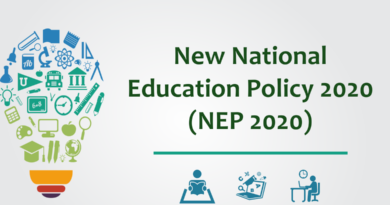Research Sheds New Light on Early Childhood Education Practices
Groundbreaking studies uncover the latest insights in brain development, play-based learning, and social-emotional learning for young children.
Recent advances in early childhood education research have provided educators, parents, and policymakers with valuable insights into the most effective teaching methods and strategies for young children. These groundbreaking studies have contributed to a deeper understanding of brain development, the importance of play-based learning, and the essential role of social-emotional learning in early childhood education.
Brain Development in Early Childhood
One of the most significant findings in recent years is the crucial role that early experiences play in shaping a child’s brain development. Researchers have discovered that the brain undergoes rapid growth and development during the first few years of life, with neural connections forming at an unprecedented rate. This period of rapid brain development highlights the importance of providing young children with stimulating, nurturing, and supportive environments that promote cognitive, emotional, and social growth.
Play-Based Learning
Play is an essential component of early childhood education, and recent research has confirmed the many benefits of play-based learning. Through play, children develop critical thinking, problem-solving, and creative skills while also learning to navigate social interactions and relationships.
Studies have shown that play-based learning helps young children develop a strong foundation for academic success, enhancing their cognitive abilities and contributing to the development of executive functioning skills, such as planning, organizing, and self-regulation. As a result, many preschools and early learning centers are shifting their focus from traditional, structured curricula to play-based approaches that foster exploration, discovery, and active learning.
Social-Emotional Learning in Early Childhood
Social-emotional learning (SEL) has emerged as a vital component of early childhood education, with research demonstrating its significant impact on a child’s overall well-being and academic achievement. SEL encompasses skills such as self-awareness, self-management, social awareness, relationship-building, and responsible decision-making.
Recent studies have shown that children who participate in SEL programs are better equipped to navigate challenges, handle stress, and develop positive relationships with peers and adults. Additionally, these children often demonstrate improved academic performance and decreased behavioral problems. As a result, there has been a growing emphasis on incorporating SEL into early childhood curricula and teacher training programs.
Implications for Early Childhood Education
These advances in early childhood education research have important implications for teaching practices and policies. By understanding the crucial role of early brain development, educators and parents can better support children’s cognitive, emotional, and social growth during this critical period.
Furthermore, the benefits of play-based learning and social-emotional learning underscore the need for a well-rounded, holistic approach to early education that fosters the development of the whole child. This includes creating inclusive, supportive learning environments that prioritize play, exploration, and the development of essential life skills.
The latest research in early childhood education has provided valuable insights into best practices for teaching and nurturing young children. As we continue to learn more about brain development, play-based learning, and social-emotional learning, it is crucial to adapt our educational approaches to ensure that children receive the support and experiences they need to thrive. By embracing these research-based practices, we can help set the stage for a lifetime of learning, growth, and success.


